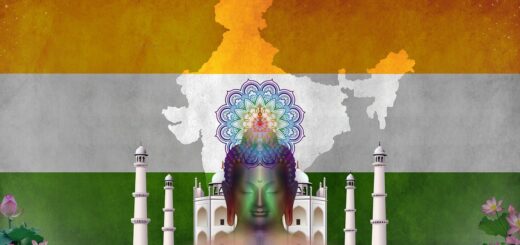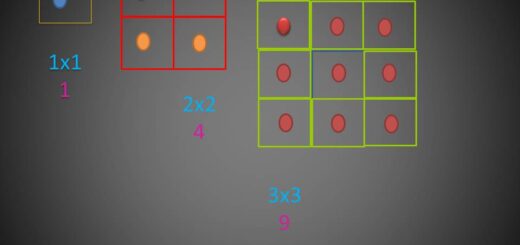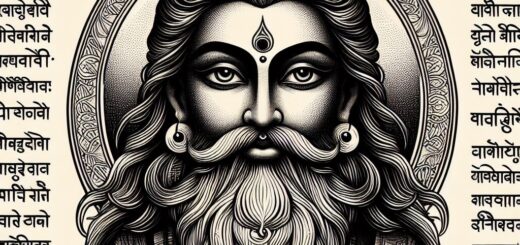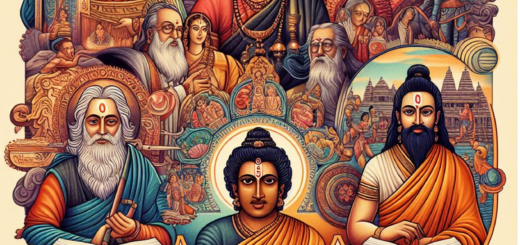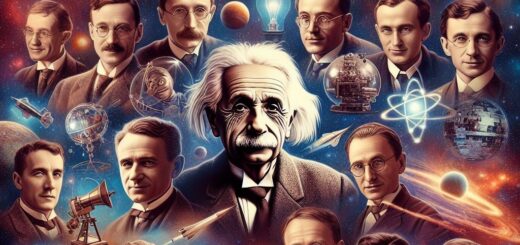The Concert – Shanta Rameshwar Rao

Kannada Summary
Notes
- Which word in the first paragraph describes the manner of the girl when she saw the newspaper?
Ans: The word Excitedly describes the manner of the girl when she saw the newspaper.
2.Why do you think the mother cautioned the girl?
Ans: The mother thought that the boy who was unwell, was asleep and the voice of the girl would disturb him. We mustn’t miss the chance’.
3.‘We mustn’t miss the chance’.
a) What chance did the boy not like to miss? Why? Do you think the
boy would get a chance in the future?
Ans: The boy didn’t want to miss Pandit Ravishankar’s concert because it dies a chance of a lifetime. It was a rare opportunity, such a great artist never gives their concert frequently. No, I wouldn’t think the boy would get a chance in the future because he was in his last stage of life.
- Imagine you were the mother of the boy. Would you have reacted differently in the situation? If so, how?
Ans: No, the mother is caring towards the boy, and is she is worried that the boy would exert himself. So she urges him to lie down and take a rest.
5.Read the third paragraph. He raised himself up without any help. The
mother murmured with ‘a catch in her throat’ on seeing him. What does
this suggest about the condition of the boy? Read the fourth paragraph
and answer.
Ans: The boy was in serious condition. Doctors gave up hopes, medicine could not work on him. His end was not far, even he was not able to breathe, oxygen was necessary for him.
6.For a moment, Smita had forgotten something. What was it?
Ans: For a moment, Smita had forgotten that her brother was very ill.
7.In what way was the truth frightening to Smita?
Ans: Smita knew that Anant was going to die and the truth was frightening.
8.Do you consider Anant a talented boy? Justify with support from the text
Ans: Anant was a talented boy because he was the best table tennis player in school and the fastest runner. He was a Sitarist too and at the tender age of fifteen, he could compose his own tunes, which had surprised his Guru.
9.‘They had come with high hopes.
a. What were their ‘high hopes’?
Ans: He would again walk and run He would take in the forthcoming table-tennis tournament. He would play sitar and would be a great Sitarist one day.
b.Do you think their hopes would be fulfilled? Support your answer.
Ans: No, their hopes wouldn’t be fulfilled. But his condition became worse day by day. The Doctors also lost their hopes.
c. Doctors said something to the parents. Were those words of hope or words of despair? (Para.6)
Ans: The Doctor’s words are words of despair.
d. ‘They did not voice their fears.’ Who does the word ‘they’ stand for?
i) doctors ii) friends
iii) family members. (Choose the right answer.) (Para.6)
Ans: Family members
10.Her eyes filled with tears. Were they tears of happiness or sorrow? Give
reasons
Ans: Smita’s eyes were filled with tears, that was the tears of sorrow. Because her brother Anant was very ill and he was not able to go to the concert though he had so much of desire to attend the concert.
11.‘Suddenly a daring thought came to her’. Can you guess what thought
Smita had?
Ans: Yes, we can guess that thought. She made up her mind to meet Pandit Ravishankar and she would convince him by explaining the condition of her brother. If he obliges, it was good but there was no harm in trying that.
Exercise II
- The word ‘gasp’, according to the dictionary, suggests- surprise or pain.
Which meaning is relevant in this context? (Para.10)
Ans: It can stand for surprise, shock, or sudden intake of breath. In, this context it stands for pain as the boy has problems with breathing.
- As Smita sat listening to the music, she was spellbound. But ,all the while,
her mind was echoing something else. What was that?
Ans: All the time the sentence uttered by her brother, “The chance of a lifetime,” kept echoing in her ears.
3.Why does the writer use the word ‘wriggled’ to describe Smita’s movement?
Ans: Smita had to move through the crowds. So the word ‘wriggled’ is used to describe her movement because wriggle means to move about in a constricted manner.
- Smita’s nervousness is suggested by the phrase ‘her heart beating loudly’
in paragraph 12. Identify two more phrases that describe a similar state
in the next paragraph.
Ans: Her knees felt weak and her tongue was dry.
- Did Smita tell what she had in her mind to the musicians? Who responded
to her request immediately? What was the response?
Ans: Yes, Smita told the musicians what she had in mind. But the mustachioed man was the first one to respond and he told Smita not to bother Panditji with such requests as Panditji was a busy man.
6.Do you think the response of the artists was unusual? If yes, why?
Ans: Yes, we don’t come across kind people very often in life. Moreover, as the mustachioed man said, Panditji was indeed a busy man. Yet, both the musicians decided to respond positively to the request of Smita, showing the goodness of their hearts.
- The neighbours could not believe their eyes. Why do you think they felt
like this?
Ans: It was unbelievable that Pandit Ravi Shankar, a renowned artist, visited the house of aunt Sushila.
8.Read the last paragraph, which very effectively but briefly describes the
end. Exchange your feelings with your partner.
Ans: Anant’s lifetime desire was to see and listen to Pandit Ravishankar’s Sitar Concert. His body was very weak and could not tolerate such a big astonishment. On the contrary, he satisfied his wish. At this happy moment, his life went out of his body gently, very gently. This was very effective and fascinating.
- Can you say that the concert was entertaining to Smita? Justify your
answer
Ans: No, the concert was not at all entertaining to Smita. Because she had a plan, that was echoing in her mind. She simply listened to the music, her brother’s words were reminding her in every beat of the tabla.
- Smita was nervous as she stood before the wizard. Which sentence
suggests this?
Ans: Her knees felt weak, her tongue dry
11.Did Pandit Ravi Shankar and Ustad Allah Rakha perform in the
boy’s house? Do you think this was an unusual incident? If yes,
give reasons
Ans: Yes, of course, Pandit Ravishankar and Ustad Allah Rakha performed in the boy’s house. This was an unusual incident because the famous artists coming to a common boy’s apartment and gave a performance was a big deal and it shows the simple and kindness of the great personalities.
Exercise III.
- Do you like the story? Why?
I like/ don’t like, because….(One reason is given. You may give as
many other reasons as you like)
a) This is a story about music. b)This is a story about a sister’s love for her brother.
c)This is a story about the goodness of people. d)This is a story about the last wish of a dying boy being fulfilled.
Ans: This is a story about music.
- In your opinion, which words in the list below describe Anant’s
character or state? Write Yes/ No in the space given.
[Refer to a dictionary for the words that you are not sure of]
The boy is …..
a. energetic …………….
b. robust ……………
c. aesthetic …………….
d. imaginative ……………
e. confident …………….
Ans: Energetic – No
b) Robust – No
c) Aesthetic – Yes
d) Imaginative – Yes
e) Confident – Yes, because even in his illness he is firm when he says, “I must hear him and see him. It’s the chance of a lifetime.”
- Look at the following phrases in the lesson. They are descriptive.
Categorise them in columns ‘A’ and ‘B’ appropriately. {spellbound;
unfolding the gates of enchantment; plaintive notes; fast twinkling ones;
first notes; wonder; dream; unfolding ragas.}
| Table A | Table B |
| Descriptive of music | Descriptive of Smita’s feelings |
Ans:
| Table A | Table B |
| Descriptive of music | Descriptive of Smita’s feelings |
| Plaintive notes | Unfolding the gates of enchantment |
| Fast twinkling one | spellbound |
| First notes | Wonder |
| Unfolding ragas | Dream |
- Ustad Sahib and Pandit Ravi Shankar agreed to perform for the boy.
What made them agree to do so? What would you have done if you
had been the musician?
Ans: It is clear that basically Ustad Sahib and Pandit Ravi Shankar were good human beings who were capable of feeling for others. They must have felt moved by the story of the little boy whose days were numbered, but who waited for the chance of a lifetime to come his way. So in spite of being busy people, they spontaneously decided to visit the boy to play for him. They must have also been moved by the earnest efforts and genuine feelings of the sister, who had mustered enough courage to approach them with an out-of-the-ordinary request. If I were the musician, I too would do the same thing. The satisfaction of making another human being, that too a young boy who is in the throes of death, happy is incomparable.
- What arrangements would you make if Pandit Ravi Shankar and Allah Rakha were coming to your house? [You may include in your answer such arrangements – one example is given. Think of others and write them in the bubbles]. Note:-Answers need not be the same for all.
Ans: Since the musicians came to perform for a dying boy, it would be inappropriate to invite others. The situation cannot be taken as a celebration. The only arrangement I would make is to record the music, both audio and video, so that if by the grace of God, Anant lived, he would have the pleasure of listening to the heavenly music again.
- Do you like the ending of the story? Why? If you don’t, how would you like to end it?
Ans: No, I don’t like sad endings. I would have wanted music to bring about miraculous changes in the boy, improving his condition so that, as his parents and sister had hoped, he was even able to play in the table tennis tournament again.
- Suppose you are Smita and invite Pandit Ravi Shankar(PRS) to yourhome. Imagine the conversation that follows and write it. Some clues
are given
Ans:
- You: Good evening sir. May I have a word with you, please?
- PRS: Well?
- You: My brother is an ardent fan of yours.
- PRS: I’m glad to hear that. Where is he? Has he too come for the concert? Is he here?
- You: No, he can’t move out of the house. He is suffering from cancer.
- PRS: I’m sorry… What a terrible blow it must be in your life… Do take care and be courageous. How can I bring a cheerful note into your sad life?
- You: Would you please come with me to see him?
- PRS: (looking at others) What do you say?
- You: Please, I beg you all to come and play for him.
- Mustachioed man: Are you joking? Do you know whom you are speaking to? Don’t bother such a busy man with your silly talk.
- PRS: Sh! What do you say Ustad?
- Alla Rakha: Don’t weep. Don’t worry, child. We’ll be there tomorrow.
- In the course of the story, whom do you consider to be more worried,
Smita or Anant? Have a discussion with your partner/with other
groups/in the class.
Ans: It is Smita who is more worried because she has understood that doctors have given up hopes of Anant’s recovery. She is very upset when she witnesses the desire of her brother to attend the concert, but his physical inability to leave the bed. She perhaps realizes that if this chance is not taken, Anant would never get the chance of listening to Pandit Ravi Shankar again. On the other hand, Anant might not have known the seriousness of his condition because everyone around him posed to be cheerful and tried to behave normally.
- Some incidents in the story are given in a jumbled order. Rearrange them as they occur in the story.
Smita bit her lip in self-reproach.
b) A large mustachioed man gave a long boring speech.
c) Smita read the newspaper and got excited.
d) Pandit Ravi Shankar and Ustad Allah Rakha started playing in the boy’s house.
e) Smita was lost in her thoughts in the park.
f) Mother said, ‘This is not the last time they are going to play.’
g) Anant said, ‘It’s the chance of a lifetime.’
Ans: Smita read the newspaper and got excited. (Para 1)
g) Anant said, ‘It’s the chance of a lifetime.’ (Para 4)
a) Smita bit her lip in self-reproach. (Para 5)
f) Mother said, ‘This is not the last time they are going to play.’ (Para 6)
e) Smita was lost in her thoughts in the park. (Para 8)
b) A large mustachioed man gave a long boring speech. (Para 11)
d) Pandit Ravi Shankar and Ustad Allah Rakha started playing in the boy’s house.
10.a) Identify the paragraphs in which the incidents
stated above occur.
b) Read each paragraph again and summarise them in your own words.
Ans: The first paragraph describes Smita’s excitement over the newspaper announcement of Pandit Ravi Shankar’s sitar recital program the next day at Bombay in the Shanmukhananda Auditorium.
Paragraph 4 describes Anant’s desire to hear and see Pandit Ravi Shankar as he considers it the chance of a lifetime. But sadly, even as he expresses his desire, he gasps for breath and is given oxygen from the cylinder.
Paragraph 5 explains Smita’s sense of guilt on disturbing her sick brother by talking excitedly about Pandit Ravi Shankar’s program. She recollects sadly the bitter truth that her brother, only fifteen, is suffering from cancer. She also recollects the happier days when her brother shone as a table tennis champion and the fastest runner.
Paragraph 6 places before the readers the sad fact that even as Anant’s family was hoping for a miraculous recovery of Anant, the doctors themselves had lost hope. They had instructed the family to take Anant home and keep him happy. It’s then that he comes to know about Pandit Ravi Shankar’s recital.
In paragraph 8, we see that even as people around her in the park are involved in various activities, Smita is lost in thought because she is thinking of how to turn Anant’s desire of seeing and hearing Pandit Ravi Shankar into a reality.
Paragraph 11 captures the beauty of the concert. It describes how Smita was enthralled by the music. However, even as she is caught in the magic of the music, Anant’s words that it’s a rare chance to hear Pandit Ravi Shankar keep echoing in her ears. The paragraph also states that a mustachioed man delivered a long and boring speech before the program came to an end.
Paragraph 16, which is the last paragraph, describes the noble gesture of Pandit Ravi Shankar and Ustad Allah Rakha playing for the boy and the last breath going out of the boy even as he happily listens to his favorite musician
11.Match the following
| A | B | ||
| who discouraged the girl? | Ustad Allah Rakha | ||
| The person | who made the request | Was | Pandit Ravi Shankar |
| who gave the consent finally? | the girl, Smita | ||
| who suggested the time of the concert? | the mustachioed man |
Ans:
| A | B | C | |
| who discouraged the girl? | The mustachioed man | ||
| The person | who made the request | Was | The girl Smita |
| who gave the consent finally? | Pandit Ravi Shankar | ||
| who suggested the time of the concert? | Ustad Allah Rakha |
- Give titles of your choice to the different sections of the
unit: (one is done for you) you may have more than one
title for each of them. Justify your choice with your partner.
Section.1(Paragraphs 1-4) – Section.2 (Paragraphs 5-9) –
Ans: Section 1 (Paras 1-4) – The Chance of a Lifetime
Justification: In the first four paragraphs we see Smita getting excited over the news of the program of Pandit Ravi Shankar and Anant referring to it as the chance of a lifetime. All that follows is what Smita does to give her dying brother this chance of a lifetime.
Section 2 (Paras 4-9) – The Daring Resolve
Justification: It is in these paragraphs that we find Smita, who feels deeply for her dying brother, deciding to attend the concert, not because she wants to enjoy it, but because she has already taken the decision of approaching the Pandit with a request to play privately for her brother.
Complete the crossword with the help of the following clues:
Across and Down. Refer to the dictionary for any help.
Ans:



